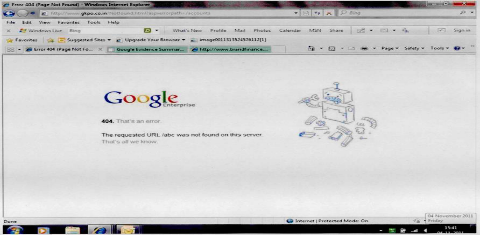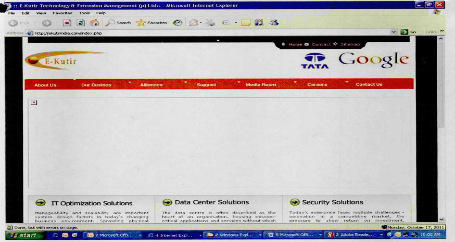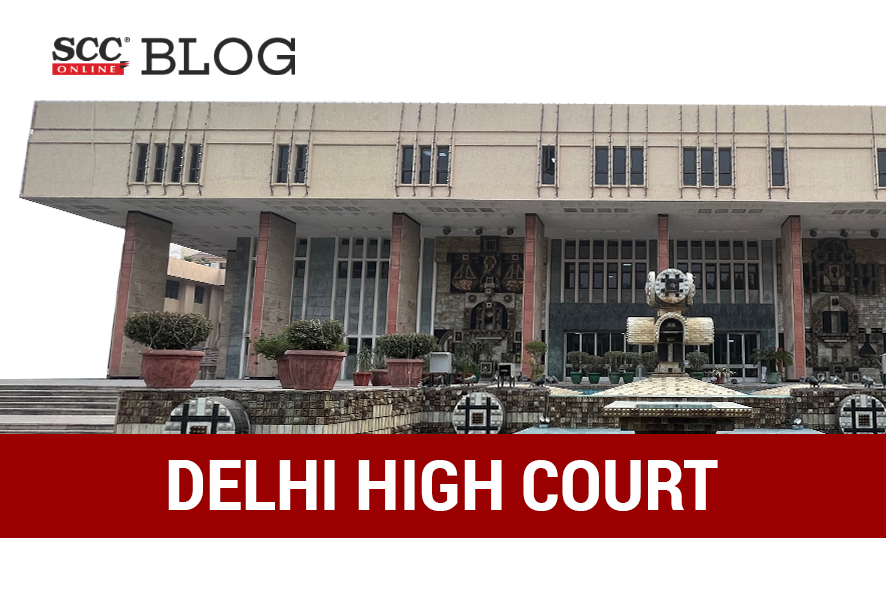Delhi High Court: In a case wherein Google LLC was adversely affected by the defendants' actions of misusing the mark “GOOGLE” and falsely claiming an association with them to deceitfully mislead the public, a Single Judge Bench of Sanjeev Narula, J.* granted permanent injunction in favour of Goggle LLC and held that the defendants were guilty of infringement and passing off the mark “GOOGLE”.
Background
The plaintiff, a multinational technology company, was the registered proprietor of the mark “GOOGLE” under Classes 16, 42, 35, and 9. The plaintiff conceived and adopted the mark “GOOGLE” in 1997, both as a trade mark and in its corporate name and was widely recognized for its internet-search engine www.google.com. The plaintiff had established offices and R&D centres across India to provide its products and services and develop locally relevant products. The plaintiff's products and services, including its website, bear the mark “GOOGLE” and variations thereof, including ![]() . Further, plaintiff's mark “GOOGLE” had acquired a high degree of inherent distinctiveness and had been included in its list of well-known trade marks in terms of Section 2(zg) of the Trade Marks Act, 1999.
. Further, plaintiff's mark “GOOGLE” had acquired a high degree of inherent distinctiveness and had been included in its list of well-known trade marks in terms of Section 2(zg) of the Trade Marks Act, 1999.
Google Enterprises (P) Ltd. (“Google Enterprises”), Defendant 1 was engaged in the business of trading, consultancy for allied activities etc. and was registered under the corporate name “Google Enterprises Private Limited” as per the records of the Registrar of Companies, Kanpur. Google Enterprises applied for registration of marks “GOOGLE ENTERPRISES”, ![]() and
and ![]() in Classes 35 and 42 in August 2011. In September 2011, on gaining knowledge of Google Enterprises’s corporate name and filing of trade mark registration applications, the plaintiff sent a cease-and-desist letter. Google Enterprise agreed to withdraw its trade mark registration applications but refused to amend its corporate name.
in Classes 35 and 42 in August 2011. In September 2011, on gaining knowledge of Google Enterprises’s corporate name and filing of trade mark registration applications, the plaintiff sent a cease-and-desist letter. Google Enterprise agreed to withdraw its trade mark registration applications but refused to amend its corporate name.
In October 2011, plaintiff learnt that a concocted collaboration was announced between plaintiff's Indian entity and “Tata Communications” for a joint venture, that is, a Knowledge Process Outsourcing (KPO) Unit and the said announcement was publicized by way of a brochure and news articles. It was submitted that neither the plaintiff nor the plaintiff's India entity entered into such a collaboration and Google Enterprises misrepresented the public into believing that on depositing certain amounts of money in Google Enterprises's bank accounts, they would secure a job with the KPO unit. The plaintiff also learnt that Google Enterprises operated websites, namely, www.gkpo.co.on and www.ekutirindia.com, which used the marks ![]() and
and ![]() respectively. Thus, the plaintiff submitted that the defendants were acting in collusion with each other in furtherance of their unlawful activities and they had misrepresented their association with plaintiff by misusing plaintiff's mark “GOOGLE” on their websites.
respectively. Thus, the plaintiff submitted that the defendants were acting in collusion with each other in furtherance of their unlawful activities and they had misrepresented their association with plaintiff by misusing plaintiff's mark “GOOGLE” on their websites.
Analysis, Law, and Decision
The Court noted that no evidence was produced by the defendants to refute plaintiff's allegations and thus, the Court opined that based on oral and documentary evidence produced by the plaintiff, it was established that the defendants had used plaintiff's registered marks without authorisation or consent. The Court further noted that Defendants 1 and 2 had misrepresented to the public that they were partners of Plaintiff/ Plaintiff's India entity which was “Google India” based on which Defendant 2 announced a fictitious KPO unit. The Court opined that the modus operandi of defendants was to dupe members of the public into believing that they would get a desk job, on depositing money with Defendant 1 and be employed with an entity associated with the plaintiff. The Court further noted that the defendants were unauthorizedly using the plaintiff's marks on impugned websites.


The Court opined that such was the level of deception and trickery, that the individuals reached out to the plaintiff inquiring on their association with the defendants on account of the publicity of the said KPO Unit and the impugned websites of the defendants.
The Court further opined that the defendants had been dishonestly using plaintiff's mark and the impugned marks displayed on the defendants' websites were entirely identical to plaintiff's mark ![]() apart from the addition of the word “Enterprise” in one instance. The word “GOOGLE” was depicted in a font and styling which was deceptively similar to the plaintiff's registered mark. The Court further opined that “the defendants wanted to free-ride on the plaintiff's appeal in the global/Indian market for unlawful monetary gain. Thus, they deliberately misrepresented to the trade and public that they were carrying out their business in partnership/affiliation with the plaintiff, which was certainly not authorized or legitimate. Such misrepresentation had already led to confusion and deception among the public at large ”.
apart from the addition of the word “Enterprise” in one instance. The word “GOOGLE” was depicted in a font and styling which was deceptively similar to the plaintiff's registered mark. The Court further opined that “the defendants wanted to free-ride on the plaintiff's appeal in the global/Indian market for unlawful monetary gain. Thus, they deliberately misrepresented to the trade and public that they were carrying out their business in partnership/affiliation with the plaintiff, which was certainly not authorized or legitimate. Such misrepresentation had already led to confusion and deception among the public at large ”.
Thus, the Court held that the defendants were guilty of infringement and passing off. The Court relied on General Electric Company v. Altamas Khan, 2008 SCC OnLine Del 1794 and Microsoft Corporation v. Yogesh Papat, 2005 SCC OnLine Del 216 and awarded Rs. 10 lakhs as damages in favour of the plaintiff, payable jointly and severally by the defendants. The Court further directed the defendants to hand over all printed matter, including stationery, brochures, bearing the mark/name “GOOGLE” to the authorized representative of the plaintiff representative(s) for the purpose of destruction. Further, the Court directed Department of Telecommunications to issue directions to all ISPs and telecom service providers directing them to block access to the website hosted on domain name, www.googlekpo.com.
[Google LLC v. Google Enterprises (P) Ltd., 2023 SCC OnLine Del 1949, decided on 1-3-2023]
Advocates who appeared in this case :
For the Plaintiff: Advocate Tanya Varma
Advocate Coral Shah
*Judgment authored by: Justice Sanjeev Narula







